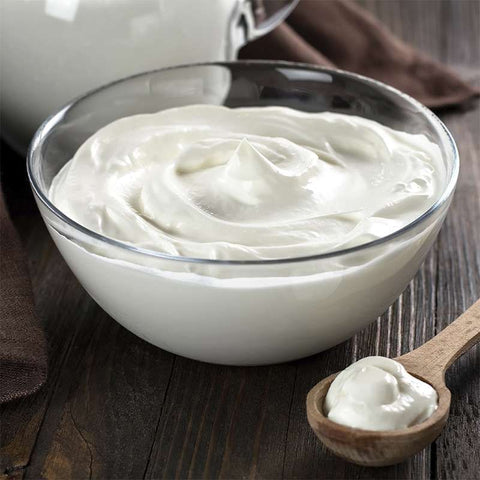Yogurt is, without a doubt, a very healthy food, especially for growing children and also for older people, because it provides a large amount of nutrients, is very rich in calcium and has excellent gastrointestinal qualities. .
Natural yogurt is an essential probiotic food with around 100 million bacteria and numerous properties for our body. It is a fermented milk obtained from the action of different bacteria (streptococcus thermophilus and Lactobacillus bulgaricus) that transform part of the lactose into lactic acid and an increase in consistency is produced by coagulation of its proteins.
According to a British study, the changes that yogurt exerts on the bacteria that live in our intestines may be the key to explaining why it is so good for our health.
Thanks to this new study, we now know that eating yogurt is associated with changes in the intestinal microbiota and that these changes may explain, at least in part, its health benefits.
Yogurt: A Myriad of Nutrients
Eating yogurt is a quick, delicious, cheap and easy way to get the nutrients we need every day, especially calcium.
Yogurt has a fresh, easily customizable taste and is very healthy. But why? We have selected the five most notable properties that make yogurt a healthy and nutritious snack.
1. Yogurt is a source of protein , essential for developing muscles
Yogurt contains two types of protein, whey and casein, considered “good” because they are easy to digest and rich in essential amino acids.
2. Yogurt is a source of calcium , a key nutrient for maintaining strong bones and teeth. Not only is it essential for building and keeping bones strong, but it also plays a role in muscle contraction and blood clotting. It is also believed to help regulate blood pressure.
A pot of yoghurt provides 20% of the recommended daily amount of calcium2, so eating a yoghurt a day is a very simple way to ensure a sufficient intake of calcium and also phosphorus, and in fact it is a habit that we can maintain throughout our lives, since it is beneficial for children (for bone growth), for teenagers and for the elderly (to prevent a calcium deficiency that could cause osteoporosis).
3. Yogurt is a source of carbohydrates , which give us energy
Carbohydrates are essential for obtaining the energy we need. Yogurt contains carbohydrates mainly in the form of lactose: during the fermentation process, the lactose is broken down, giving yogurt its unique texture and flavour.
in the image: Nutritional Table of a Natural Yogurt

Many flavored yogurts may also contain added sugars, so if you're trying to cut back on calories, you may want to opt for an unsweetened variety or sweeten a plain, sugar-free yogurt yourself.
But be careful: if you like to sweeten your plain yogurt, whether with sugar, jam or honey, limit the amount of sugar you add.
4. Yogurt is a food with a relatively low fat content
As a dairy product, yoghurt contains different amounts of fat depending on the milk used and the portion consumed. Even so, this level is usually quite low: from 0% in the case of skimmed yoghurts to 4% in full-fat yoghurts5.
Thinking about giving up yogurt to follow a low-fat diet? According to a study, people who eat more than three servings of yogurt a week have less difficulty controlling their weight in the long run.
Eating yogurt is a healthy habit that will help you stay away from other less nutritious foods with a high salt or sugar content and thus maintain a more balanced daily diet. Why not try using yogurt instead of cream or butter in your favorite recipes?
5. Yogurt contains 10 beneficial bacteria
When we eat yogurt, it provides us with all the benefits of fermented foods in the form of lactic bacteria7, which break down the lactose in yogurt during fermentation and also in the intestine.
So, if you are lactose intolerant, you may have less difficulty digesting yogurt than milk: another compelling reason not to give up yogurt in your diet and still be able to meet your calcium needs.
A jar of yogurt also contains vitamins (B2, B9, B12), trace elements (zinc, phosphorus, magnesium, potassium) and a high percentage of water, which helps us stay hydrated and provides that fresh taste.





Comments (0)
There are no comments for this article. Be the first one to leave a message!